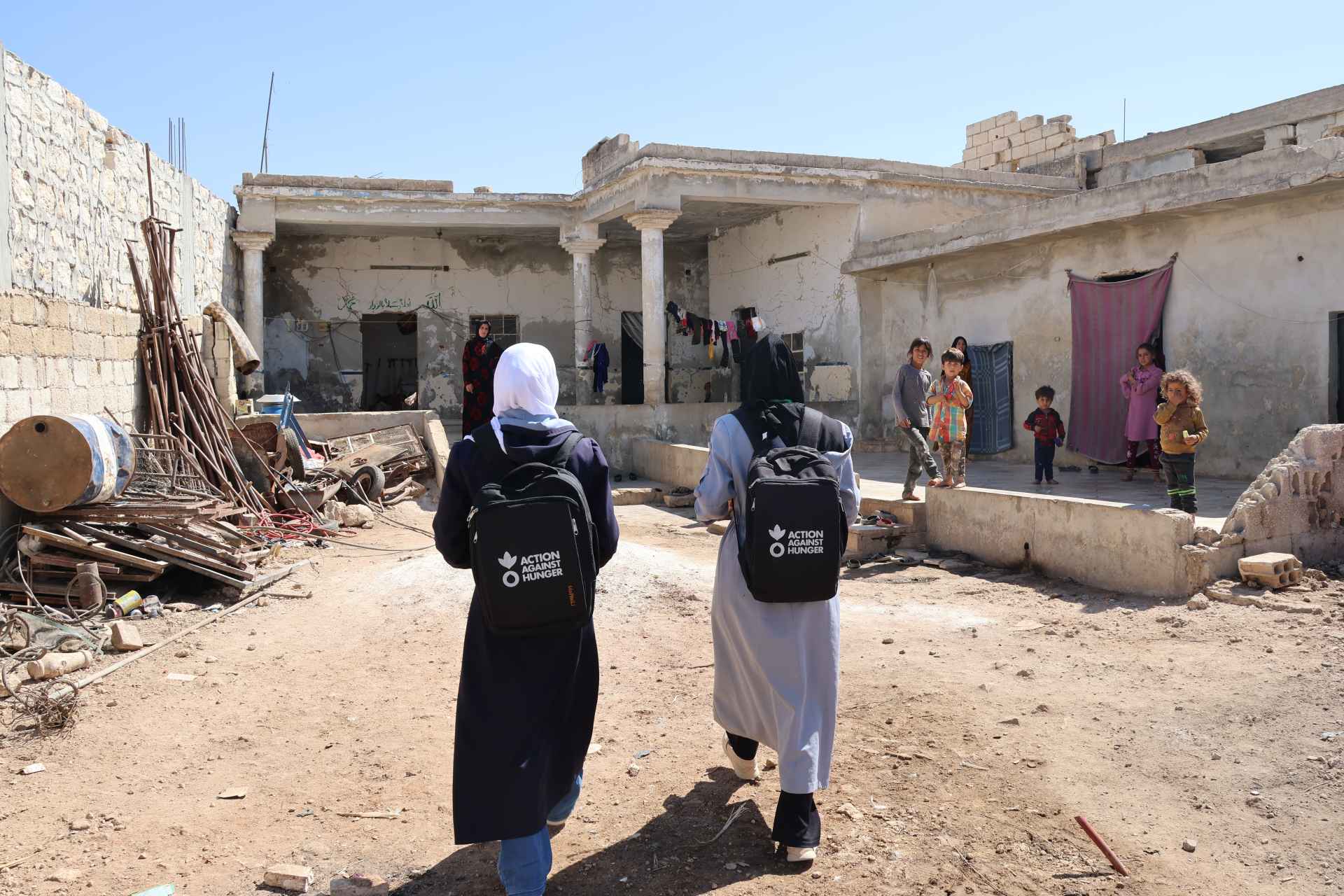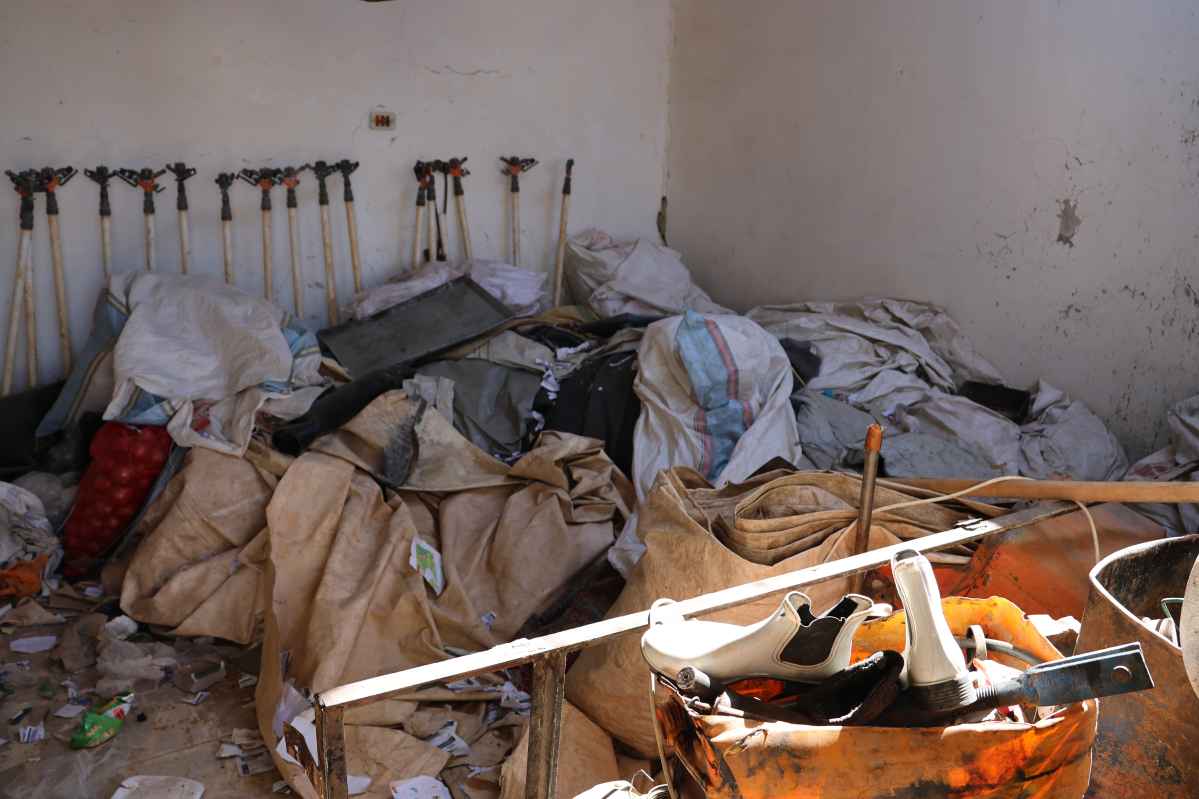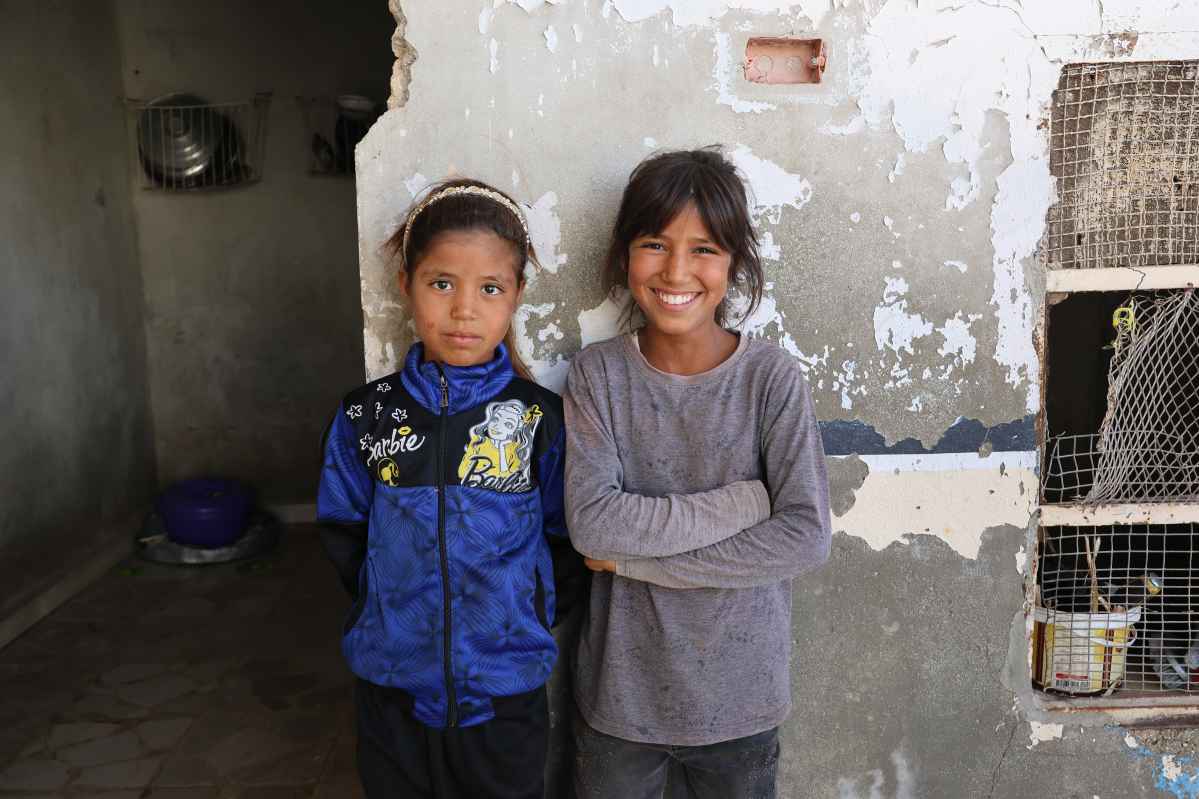

THE POWER OF A PROPER REFERRAL COMMUNITY HEALTH WORKERS
Huda is a 48-year-old mother of nine children, six girls and three boys. Her husband, a farmer in his fifties, works on land that belongs to someone else. Together, they strive to provide for their large family, working tirelessly in the fields. In addition to their nine children, Huda's husband is also married to another woman, with whom he has five more children, making the total number of children in the household 14. Despite the large family, Huda and her husband are determined to keep their family together and work through the challenges that come their way.
However, life has not been easy for them. The family was displaced from their village in Aleppo for five years, when their home was destroyed in the conflict. They were forced to live in makeshift tents during their displacement, struggling for survival. One year ago, they were able to return to their village, but the situation was far from ideal. The family initially set up their tents on the outskirts of the village. Later, they were offered a small, house by a relative. But even this new living arrangement was far from comfortable, lacking many of the basic that would allow them to live with a sense of stability.
Despite their best efforts, Huda and her husband have faced many barriers to meeting the needs of their large family. Three of their 14 children are officially registered in government documentation, but the others were never registered due to the displacement. Furthermore, none of their children attend school, leaving them without formal education and the opportunities it might provide. The lack of access to essential services, such as healthcare and education, has made their lives even more difficult.

One day, Huda's 8-year-old daughter, Rama, accidentally spilled hot tea on herself, severely burning her hand. The burn caused intense pain, but Huda was unsure how to treat it.
"I didn’t know what to do," Huda recalled. "I heard that toasted barley is good for burns, so I tried this method to cure Rama’s hand."
But despite her efforts, Rama's burn only worsened. The hand became more inflamed, bleeding, and the pain persisted for over a month and she lost the ability to move her hand properly. The scorching heat of summer made the situation even more unbearable.
“I was afraid that if I sought medical help, it would be too costly for us. So, I kept using my homemade remedy on her hand, hoping it would make her feel better.” Huda said, her voice filled with regret.
It was during this difficult time that a team of Community Health Workers (CHWs), supported by Action Against Hunger and funded by AICS, visited Huda's village. These CHWs are trained to provide basic health education and referrals for families in need. They conduct home visits, sharing vital health tips, screening malnutrition and offering guidance on how to address common health issues in the community.
When the CHWs visited Huda's household, they immediately noticed Rama’s severe burn. They knew that the home remedy Huda had used was not enough to treat the injury. Recognizing the urgency of the situation, the CHWs quickly referred Rama to the main health center for proper treatment.
The parents did not take her to the health center when first asked because they were busy providing for their family and trusted that the barley remedy would work.
“We conducted three visits to Huda’s home to ensure Rama had gone to the health center and started her treatment, and to convince her parents of the urgency. After these visits, the family trusted us and finally went,” said Samah, one of the CHWs.
Rama received the appropriate medical care she needed at Al Zirbe Health Center, which is also supported by ACF and AICS. The center provided free treatment, including wound care. For the first time in a month, Rama felt some relief from the constant pain, and her hand began to heal.

Huda expressed her gratitude for the timely intervention. "There is a huge difference between barley and real medical intervention, I am so thankful for the help." she said.
While Huda and her family still face many challenges, they have found cure in the provided support. This intervention not only brought Rama the relief she desperately needed but also reminded Huda that help is available, even in the most difficult circumstances.
Additionally, multiple cases of malnutrition were detected in the same village among both children under five and pregnant women. All cases were referred to the health center to receive the necessary treatment.
“We the CHWs, consider ourselves are the first success stories of this intervention, as the trainings we initially received corrected many misconceptions we used to do and practice in our daily lives. We started by applying this new information on our families.” Said Baraa, one of the CHWs, emphasizing on the importance of such initiatives in her community.
